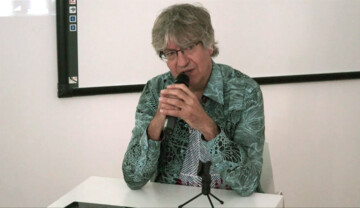Instituent practices against neoliberalism and the constituent power of the common
The elemental tension crossing the problems of the common at this moment in time runs between the proliferation of practices which establish other modes of producing, instituting, organising and creating unprecedented forms of sociality and politicisation, and which foretell and produce new models of social and economic organisation; and the introduction of these practices into the reproduction logic of an economic and political power structure defined by power relations historically built by relational capital, and still with a high capacity to impose the systemic tendencies which are somewhat affected by the proliferating rootstock of the common and its practices.
Therefore, we cannot discuss common practices without conceptualising the different tendencies engendered by the capitalist power structure, those which seek to impose different logics of expropriation and privatisation on the overall socioeconomic and ecological-productive circuit. By definition, this logic is exponentially expansive and operates, relentlessly, to destroy the objective possibilities of building common practices which can be accumulative and expansive in equal measure. As things stand, this involves analysing the minimum conditions for forming the common, circumventing an analysis of its tendentiality as a pure network of spontaneous behaviour to begin to understand it as a reality of practical behaviours and epistemologies, allowing the foundations of anti-capitalist politics to be constructed and enabling it to operate on the horizon of a major post-capitalist transformation.
As a result, the minimum conditions of the common today are found through: imposed and radically egalitarian policies, which involve the establishment of life possibilities unconditioned by different artificial scarcity policies imposed by neoliberalism, and which guarantee the potential to think and organise the common through the huge potential of social creativity, repressed and destroyed by the currently imposed forms of hardship and mass poverty; and the guarantee that their implementation for solutions formulated in accordance with the paradigm of the common will be conceived by socially guaranteeing the transition costs for groups, classes, territories and collectives that will inevitably see a way of life affected by countless public policies and will have to destroy neoliberal institutionality to give rise to the possibility of the common.
This diagnosis entails thinking about the conceptual and practical leaps which new political subjects must organise and take to reduce – or tendentially close – the gap that exists between practices, thereby creating and disseminating the common (commoning) and a constituent power of the common. This power must in turn impose itself on a dynamic network of socio-political devices which are prone to generating greater productivity demonstrated by instituent practices of the common (commoning), which materialise as counter-powers and capacities with the ability to deconstruct the reproduction of important areas and subsystems in the capitalist social structure.
Put another way, institutional critique must simultaneously produce institutional crisis. This means that the institutions of neoliberalism and the neoliberal state – the warp and weft of present-day society – must be analysed through the differential interceding between their predatory and authoritarian practice and the normativity that the logic of common practice imposes as a definition of a possible collective. For this same reason, it implies that a sizeable component of the reflections and practice of the common must focus at once on how to unleash the crisis for institutions which today manage dispossession and on the type of intervention methods which are more conducive to their operations being blocked, paralysed or called into question in the public sphere so their legitimacy is weakened or disappears in the current public debate. Proof that the practice of the common is correct lies in the fact that neoliberal institutions are contested, enter into crisis, and are, by and large, destroyed as instruments of social management. Expressed synthetically, we can corroborate that if an institutional crisis does not occur and the possibility of destroying the cluster of neoliberal practices does not open, the practice of commoning is in no way effective as a criterion of social order.
An analysis such as this calls for a critique of the mainstream theories of the common as a set of infinitely expansive practices, accumulating to automatically generate – or at worst to generate a spurious teleological logic – a progressive dynamic which substitutes current predatory capitalist practices of common assets and the common, and gradually recovers social rights which, in the past few decades, were conquered and destroyed through the multidimensional effects of different strategies of accumulation by dispossession and the pure political violence implemented by the dominant and elite classes. This perspective asserts that the institutionality of the common axiomatically produces the effectiveness of social articulation and its logic of operation, and is enough to displace the current practices of expropriation and dispossession, thus opening the road to the accumulation of the logic of the common as a form of social, economic and ecological regulation. Moreover, it surmises that the proliferation and addition of common practices spontaneously shapes the logics of social reproduction, which could become tendentially dominant to form new universals on the horizon of social reproduction. The reality is an opposed situation: without destruction or, at least, without the decisive displacement of neoliberal dispossession practices, the practices of the common solely represent the verification of the subordination and enfeeblement of the possibilities of collective action in the current forms of domination and exploitation imposing the neoliberal capitalist logic. There is no common policy that is not also a policy that works for a post-capitalist horizon to destroy the current neoliberal paradigm.
The overriding theory in this text is that we must simultaneously consider the instituent practices of the common and the political dynamics which, through their proliferation, grant feasibility to a constituent power of the common with purely anti-capitalist content and in the field of vision of the great post-capitalist transformation. Without thinking and organising the former there is no chance of expanding and consolidating the socioeconomic productivity and disruptive impact of the latter.


